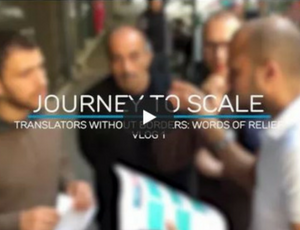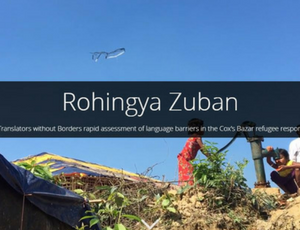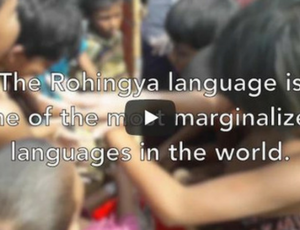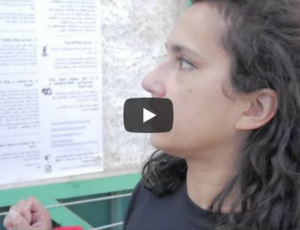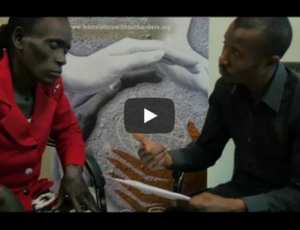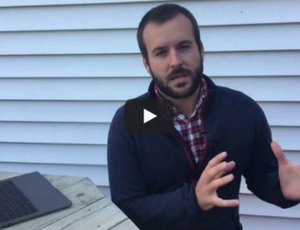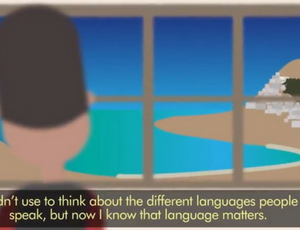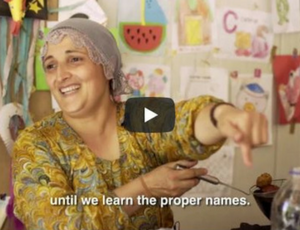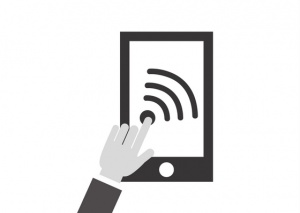TWB’s first vlog created with the support of the Humanitarian Innovation Fund (HIF). The TWB Words of Relief team documents their exciting journey to scale up humanitarian innovation, with a behind-the-scenes look at how remote crisis translation works and demos of TWB’s translation platform and glossary app. Other resources that might interest you: Accelerating Journey […]
Rohingya Zuban
When surveyed in October 2017, a shocking number of Rohingya refugees said that they were unable to communicate with humanitarian responders. The issue of difficult communications in a crisis scenario is intensified by the fact that high numbers of the refugee community are illiterate. This rapid assessment shows how communication is a major barrier in […]
Response to the Rohingya refugee crisis
A team from TWB has deployed to Cox’s Bazar to address the language barriers that are making the delivery of aid to the Rohingya population very difficult. During their stay in Bangladesh, they have developed language capacity by training local Rohingya speakers to work with them as interpreters in the refugee camps, as well as […]
The Translators without Borders Words of Relief program in Greece
This video is about TWB’s European refugee response and shows the vital work done in collaboration with humanitarian partners, to help refugees and migrants in need of assistance in a language they understand. Other resources you might be interested in: Putting language on the map of the European refugee crisis (language assessment) Language & comprehension barriers in […]
The Power of Communication in the Right Language
TWB works with communities, translators, and technology companies around the world to make information in the right languages widely and openly available. Information and communication in the right language empower individuals and saves lives. Other resources that might interest you: TWB general factsheet Translators without Borders European refugee response (factsheet) Information without understanding, rights without meaning (paper)
Accelerating Journey to Scale – Gathering Evidence and Creating Training Resources
The TWB’s Words of Relief team has been gathering evidence of effective communication in a crisis and developing innovative training resources to better support language service providers working in humanitarian settings. Other resources that might interest you: TWB begins the Journey to Scale (vlog) Learning about understanding (blog) Yesterday and tomorrow: making the promise of […]
How language barriers affect children on the move
Azad is not a real boy, but he tells a story representative of thousands of refugee youth in Greece. Although refugee and migrant children are quick at acquiring new languages, important support such as protection and tuition at school should be in their mother tongue language. Azad and the Sea of Words was created by […]
How language barriers affect children on the move (Dari with English subtitles)
Azad is not a real boy, but he tells a story representative of thousands of refugee youth in Greece. Although refugee and migrant children are quick at acquiring new languages, important support such as protection and tuition at school should be in their mother tongue language. Azad and the Sea of Words was created by […]
‘Do any of you speak English?’
The language and information barriers faced by refugees and migrants At every stage of their journey, refugees and migrants need reliable information, in a language they understand, to make informed decisions. The ability to understand and communicate affects the choices people make. With limited access to reliable information, migrants often rely on smugglers who speak […]
Translators without Borders develops the world’s first crisis-specific machine translation system for Kurdish languages
DANBURY, CT USA – 21 November 2016. Translators without Borders (TWB) has developed offline machine translation (MT) engines for Sorani and Kurmanji, specifically for translating content for refugees. Sorani and Kurmanji are the two main languages spoken by Kurdish refugees; the data used to build the systems came from the work that TWB has done […]
